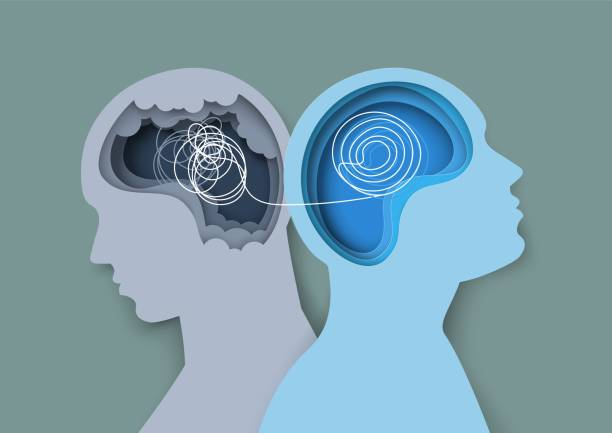Homeopathy
What Does Hypnotherapy Do
Welcome to the world of hypnosis, where the mind’s power is emphasized. Have you ever thought about what hypnotherapy could do for you? Prepare to be astounded as we explore the transforming power of this ancient therapeutic practice.
Hypnotherapy is a gentle and guided therapy that uses the subconscious mind to effect good transformation. A competent therapist can help you access deeper areas of your consciousness, where hidden beliefs and emotions live, by generating a calm state. Hypnotherapy uses techniques such as visualization and suggestion to rewire harmful thought patterns and promote healing and growth.

Understanding Hypnotherapy
Hypnotherapy is a therapeutic approach that uses hypnosis to help people overcome obstacles and improve their overall well-being. It is founded on the idea that the subconscious mind influences our thoughts, behaviors, and emotions. A hypnotherapist guides the client into a profound level of relaxation, allowing them to access their subconscious mind and create good changes.
Hypnotherapy is a collaborative procedure between the hypnotherapist and the client, not mind control or manipulation. The therapist facilitates the session by leading the client through it and assisting them in exploring and resolving underlying difficulties. The client retains control and has the option of accepting or rejecting suggestions made during the session.
Hypnotherapy is based on traditional healing methods and has been used to aid healing and personal growth for millennia. It is progressively being integrated into mainstream medicine and mental health treatment as a genuine kind of therapy.
How Hypnotherapy Works
Hypnotherapy works by bypassing the conscious mind and entering the subconscious mind, which stores deeply ingrained thoughts and emotions. The mind becomes more sensitive to positive thoughts and imagery when under hypnosis, allowing for the rewiring of negative thinking patterns and the absorption of new, empowering beliefs.
The client is directed into a deep state of relaxation during a hypnotherapy session. This relaxed condition, known as a trance, is comparable to the minutes before falling asleep or waking up. The conscious mind takes a back seat in this state, and the subconscious mind becomes more accessible.
Once in a trance, the hypnotherapist may employ a variety of procedures to address specific concerns. These approaches can include visualization, which encourages the client to imagine happy outcomes and experiences, and suggestion, in which the hypnotherapist delivers positive affirmations and change instructions.

The Benefits of Hypnotherapy
Individuals seeking personal growth, healing, and positive change can benefit from hypnotherapy in a variety of ways. Whether you want to conquer anxieties and phobias, manage stress, enhance self-confidence, or address specific health issues, hypnotherapy can be a useful tool on your path to well-being.
One of the most important advantages of hypnotherapy is its capacity to address and restructure deeply ingrained thoughts and emotions. Our conscious minds are frequently unaware of the underlying circumstances that lead to our difficulties. We may access the subconscious mind and uncover these buried parts through hypnosis, allowing for resolution and healing.
Anxiety and related problems can benefit from hypnotherapy in particular. Hypnotherapy, by gaining access to the subconscious mind, assists in identifying and rephrasing the fundamental reasons for anxiety, thereby lessening its severity and influence on daily life. Similarly, hypnotherapy has shown promising effects in assisting people to overcome addictions, manage chronic pain, and improve their sleep quality.
Hypnotherapy can help with personal growth and development in addition to its therapeutic effects. Individuals can get deeper insights, remove emotional loads, and build fresh views and coping methods by tapping into their subconscious minds. This can result in greater self-awareness, better relationships, and a stronger sense of empowerment.

Common Misconceptions About Hypnotherapy
Despite its numerous benefits, hypnotherapy is frequently surrounded by myths and misunderstandings. To fully comprehend the potential of this powerful therapeutic approach, it is critical to address these myths.
One prevalent misunderstanding is that hypnosis is a type of mind control. In actuality, hypnosis is a collaborative process in which the client maintains control throughout. The hypnotic state is simply heightened focus and relaxation, which allows for higher receptivity to pleasant thoughts.
Another common myth is that hypnosis is only useful for particular people or conditions. In reality, everyone who is willing to participate and engage in the process can profit from hypnosis. It is a versatile therapy that may be adapted to address a variety of concerns, including anxiety and phobias, smoking cessation, and weight control.
It’s also worth noting that hypnosis isn’t a quick fix or a miracle cure. It, like any other form of treatment, necessitates the client’s dedication, openness, and active engagement. Personal transformation requires time and effort, and hypnotherapy is a useful tool on the path to positive change.

Different Types of Hypnotherapy Techniques
Hypnotherapy includes a number of approaches that can be used to address a variety of concerns and aims. The technique used is determined by the individual’s needs and preferences, as well as the hypnotherapist’s competence and training.
Suggestion therapy is a popular practice. The hypnotist delivers positive suggestions and affirmations to the client while they are relaxed during suggestion therapy. These ideas are intended to replace negative thought patterns with more empowering beliefs, so encouraging positive change and personal progress.
Regression therapy is another technique commonly employed in hypnotherapy. Regression therapy directs the client’s attention to specific memories or events from their past. Individuals might acquire insights, remove emotional loads, and reinterpret prior experiences by revisiting these memories and understanding the accompanying feelings and ideas.
Another effective hypnosis approach is visualization. Visualization uses the power of the mind to effect change by assisting the client to imagine good outcomes and experiences. Visualization can be very helpful in conquering anxieties and phobias, increasing self-confidence, and improving performance in a variety of aspects of life.
The Role of the Hypnotherapist
The hypnotherapist’s involvement is critical in enabling the therapeutic process while also guaranteeing the client’s safety and well-being. A licensed and experienced hypnotherapist has the abilities and understanding to properly lead clients through the hypnotic procedure.
The hypnotherapist acts as a facilitator, establishing a secure and supportive environment in which the client can explore and resolve their issues. They have a thorough understanding of hypnotherapy techniques and concepts and can adjust the session to the individual’s personal requirements and goals.
A professional hypnotherapist possesses strong communication and rapport-building abilities in addition to technical expertise. They develop trust and rapport with their clients, laying the groundwork for the therapeutic partnership. This allows the client to feel at ease and open during the session, which improves the therapy’s effectiveness.

What to Expect in a Hypnotherapy Session
If you’re thinking about trying hypnotherapy, you should know what to expect throughout a session. Although each hypnotherapist has their own technique, there are certain general features you might expect.
Typically, the hypnotherapist will spend time at the start of a session getting to know you and your goals. They may inquire about your past, difficulties, and desired goals. This information enables them to adapt the training to your exact requirements.
After gathering the essential information, the therapist will guide you into a state of relaxation. This can be accomplished through a variety of strategies, including progressive muscle relaxation and guided imagery. The idea is to generate a deep level of relaxation in which the subconscious mind is more accessible.
The hypnotherapist will utilize appropriate strategies to target your individual goals while you are relaxed. This could include making encouraging recommendations, coaching you through visualization exercises, or delving into your prior memories and emotions. Based on your replies and input, the therapist will modify their approach.
The hypnotherapist will gently guide you back to a fully alert state near the end of the session, ensuring you feel balanced and centered before you leave. They may also provide you with tools and strategies to practice outside of the session, allowing you to keep your development going in between sessions.
Conditions and Issues That Can Be Addressed Through Hypnotherapy
Hypnotherapy can help with a variety of diseases and concerns. While hypnotherapy can be useful, it should not be used in place of medical or psychiatric care. It should be used in conjunction with adequate medical care as a complementary therapy.
The following are some common conditions and difficulties that can be addressed using hypnotherapy:
- Anxiety and stress management
- Phobias and fears
- Smoking cessation
- Weight management
- Chronic pain
- Sleep disorders
- Performance enhancement (sports, public speaking, etc.)
- Self-confidence and self-esteem issues
- Addiction and substance abuse
- Trauma and post-traumatic stress disorder (PTSD)
By addressing the underlying ideas and emotions that contribute to these diseases, hypnotherapy provides a diverse method of treating them. Hypnotherapy, by gaining access to the subconscious mind, can assist individuals in developing new coping mechanisms, reframing negative thought patterns, and encouraging healing and growth.

How to choose a qualified hypnotherapist
It is critical to select a qualified hypnotherapist to ensure a safe and productive therapeutic session. Here are some things to think about before choosing a hypnotherapist:
- Qualifications and training: Look for a hypnotherapist who has completed recognized training programs and is certified in the field. They should have a strong understanding of hypnotherapy procedures and principles.
- Experience: Consider the hypnotherapist’s experience with concerns or ailments that are important to you. Experience suggests a greater awareness and expertise in dealing with certain issues.
- Recommendations and reviews: Seek advice from reliable sources or read reviews from prior customers. Positive feedback and testimonies can instill trust in a hypnotherapist’s abilities.
- Personal connection: Trust your instincts and examine whether you feel at ease and comfortable with the hypnotherapist. A positive rapport and connection can significantly improve the therapeutic process.
- Ethical standards: Check to see if the hypnotherapist adheres to ethical standards and professional rules. Throughout the therapeutic process, they should focus on your well-being and anonymity.
Conclusion
To learn how hypnotherapy can help you grow, heal, and make good changes in your life, read on. Hypnotherapy helps me deal with deep-seated feelings and beliefs by going into my subconscious mind. This makes it possible for me to go through profound changes that are unique to my journey.
When you go into hypnosis, you need to have an open mind and be ready to work with the therapist. I know that changing myself takes time and work, but I see hypnotherapy as a useful tool that helps me move forward on my road of self-discovery and improvement.
When I think about hypnotherapy, I know how important it is to do research and find a qualified hypnotherapist who fits my wants and goals. We can start a trip toward a better future and use my mind’s untapped potential together.


